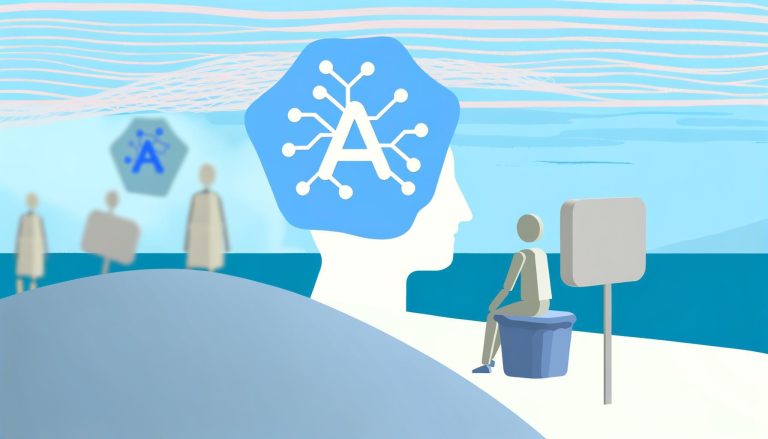Neurofeedback, an advanced form of biofeedback, has been making waves in the mental health sector for its potential to train the brain to self-regulate and optimize mental performance. With the advent of AI-driven technologies, the future of neurofeedback is poised to revolutionize mental health treatment, making it more personalized, efficient, and accessible. This article explores the promising future of neurofeedback combined with AI-driven brain training for mental health, highlighting the benefits, practical applications, and potential impact.
Introduction
Understanding the brain’s intricate workings has long been a quest for scientists and clinicians. Neurofeedback, which involves monitoring and providing real-time feedback on brain activity, has emerged as a powerful tool in this quest. With the integration of artificial intelligence (AI) into neurofeedback systems, we are witnessing the dawn of a new era in mental health treatment. AI-powered neurofeedback can offer unparalleled insights and personalized interventions, potentially transforming the way we address mental health issues. In this article, we will explore how AI-driven brain training is shaping the future of mental well-being and what benefits it holds.
The Evolution of Neurofeedback
What is Neurofeedback?
Neurofeedback, also known as EEG biofeedback, is a non-invasive therapeutic approach that measures brainwave activity and provides feedback to the individual. It is based on the principle that the brain can learn to change its patterns of activity, thereby improving mental function and well-being. Neurofeedback has been used to address various mental health issues, including anxiety, depression, ADHD, and PTSD.
How Neurofeedback Works
During a neurofeedback session, electrodes are placed on the scalp to measure brainwave activity. This activity is displayed on a screen, and the individual is trained to alter their brainwaves through visual, auditory, or tactile feedback. The goal is to promote desirable brainwave patterns and reduce maladaptive ones.
The Role of AI in Neurofeedback
AI algorithms can analyze vast amounts of brainwave data with high precision, providing deeper insights into brain activity. By integrating AI, neurofeedback systems can adapt in real-time to an individual’s unique brain patterns, offering personalized training protocols that optimize mental health outcomes.
Benefits of AI-Driven Neurofeedback
Personalization
AI-driven neurofeedback tailors the training protocols to the individual’s specific needs, ensuring that the interventions are highly personalized. This personalized approach can result in more effective and faster therapeutic outcomes.
Efficiency
With AI’s ability to process and analyze data rapidly, neurofeedback sessions can become more efficient. AI can identify optimal feedback settings and make real-time adjustments, reducing the time needed for effective brain training.
Accessibility
AI-integrated neurofeedback systems can be deployed through various platforms, including mobile apps and wearable devices. This makes neurofeedback more accessible to a broader population, allowing individuals to benefit from brain training from the comfort of their homes.
Enhanced Data Insights
AI-driven systems can provide comprehensive insights into an individual’s brain function, identifying patterns and correlations that may not be apparent through traditional methods. These insights can aid clinicians in developing more targeted and effective treatment plans.
Practical Applications of AI-Driven Neurofeedback
Mental Health Treatment
AI-driven neurofeedback can be used to treat a wide range of mental health conditions. For instance, it can help individuals with anxiety by training their brains to maintain a calmer state. Similarly, it can aid those with ADHD by improving attention and focus.
Performance Enhancement
Beyond mental health treatment, neurofeedback can be used for cognitive enhancement and peak performance training. Athletes, musicians, and executives can utilize neurofeedback to optimize their mental states, improve concentration, and enhance overall performance.
Educational Tools
AI-driven neurofeedback could also be used as an educational tool to improve learning outcomes. By training students to achieve optimal brainwave states for learning, neurofeedback can enhance memory, focus, and cognitive function.
Stress Management
Given the increasing prevalence of stress-related issues, AI-driven neurofeedback can be a valuable tool for stress management. By providing real-time feedback on stress levels and teaching individuals to modulate their brainwaves, neurofeedback can promote relaxation and resilience.
Sleep Improvement
Neurofeedback has shown promise in improving sleep quality by training the brain to achieve more restful states. AI-driven systems can offer personalized interventions to address sleep disorders, leading to better overall health.
The Future of AI-Driven Neurofeedback
Integration with Other Therapeutic Modalities
Future developments may see neurofeedback being integrated with other therapeutic approaches such as Cognitive Behavioral Therapy (CBT) or mindfulness practices. Such integration can create comprehensive treatment programs that address both the cognitive and physiological aspects of mental health.
Advancements in Wearable Technology
Wearable devices equipped with AI-driven neurofeedback capabilities are likely to become more advanced and user-friendly. These devices can provide continuous brain training and monitoring, making neurofeedback a part of daily life.
Ethical Considerations
As with any technology that involves personal data, ethical considerations are paramount. Ensuring data privacy and obtaining informed consent will be crucial as AI-driven neurofeedback becomes more widespread. Additionally, it is essential to make sure these technologies are used responsibly and do not replace human judgment in mental health care.
Conclusion
The integration of AI into neurofeedback marks a significant advancement in mental health treatment. AI-driven brain training offers personalized, efficient, and accessible solutions for various mental health conditions and cognitive enhancements. As technology continues to evolve, we can expect to see neurofeedback becoming an integral part of mental health care, providing individuals with powerful tools to optimize their mental well-being.
For those interested in tracking their mental health progress, tools like the Zenora app offer features such as mood and habit tracking, goal setting, and personalized insights. These tools can complement AI-driven neurofeedback, providing a holistic approach to mental wellness.





